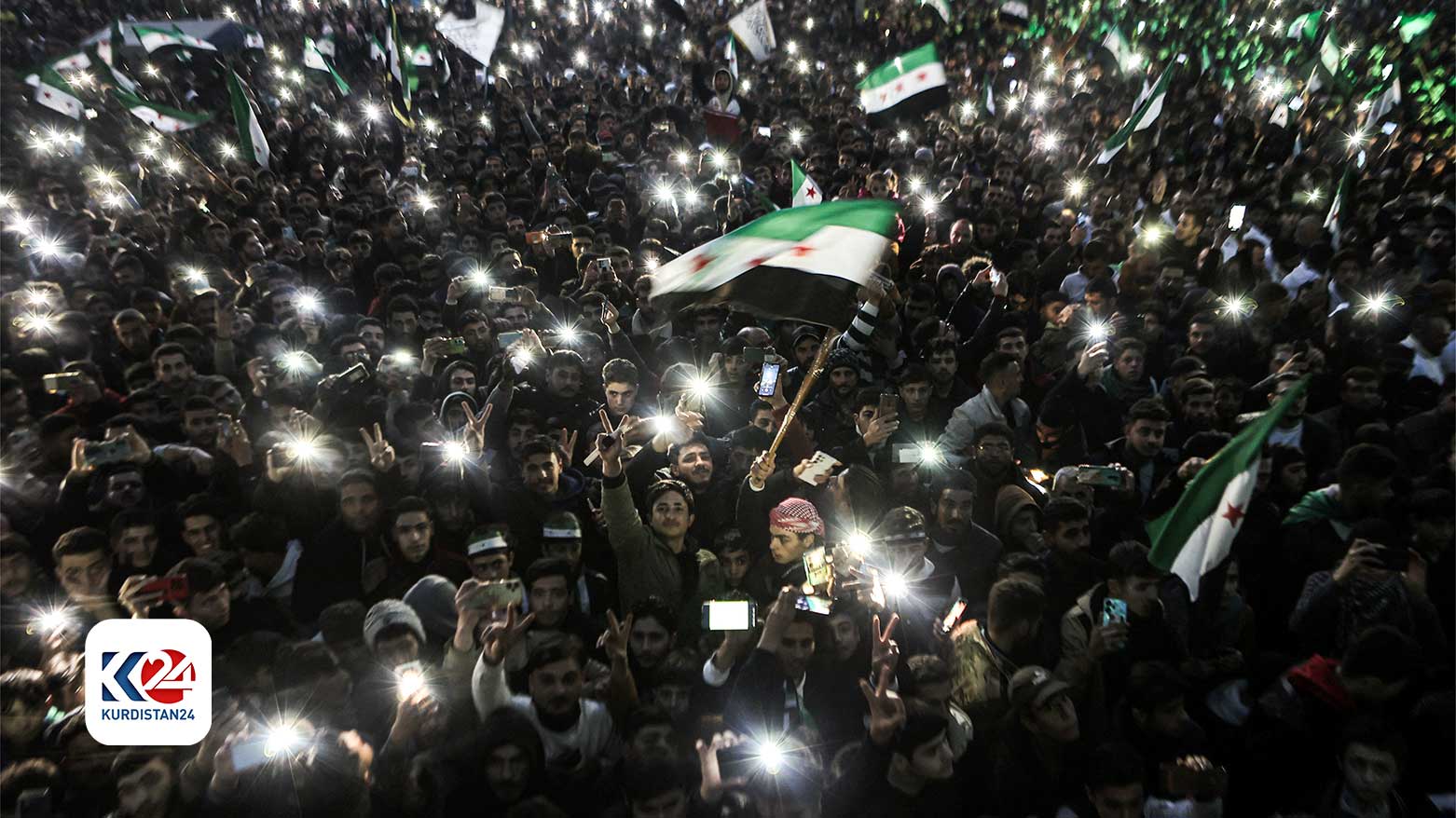What is next for Syria’s future as Islamist rebels take control?
Syria’s future is uncertain as Ahmed al-Sharaa, former al-Qaeda operative turned Islamist rebel leader, attempts to rebrand his government with promises of moderation and inclusivity while facing the challenges of governing a divided nation.

Dec. 24, 2024
ERBIL (Kurdistan24) - In the aftermath of a rapid and decisive victory over Bashar al-Assad’s regime, Syria’s Islamist-led rebel government is faced the titanic challenge of governing a deeply divided and war-torn nation.
As reported by The Wall Street Journal, rebel leader Ahmed al-Sharaa, formerly known as Abu Mohammed al-Jolani, and his Hayat Tahrir al-Sham (HTS) armed group now have control of the country, promising moderation while wrestling with colossal tasks.
Al-Sharaa, a guerrilla fighter and also a U.S.-designated terrorist who fought alongside al-Qaeda against the US in Iraq, succeeded in leading the coalition of rebel groups to topple the Assad dynasty.
Now that the battle for control is over, he is seeking to rebrand himself as a pragmatic Islamist leader.
The Wall Street Journal report highlighted that the new leader in Damascus is trying to reinvent himself and present an image of moderation. Replacing his combat uniform with a suit and his nom de guerre Abu Mohammed al-Jolani, as the report wrote, has been a brilliant tactic to draw attention.
He is also distancing himself from overblown extremist rhetoric. “People have big ambitions, but today we must think realistically,” he told reporters after the rebels’ lightening victory n toppling the Assad regime in Damascus. “Syria has many problems, and they won’t be solved with a magic wand.”
A Shifting Power Dynamic
The new government has control over key cities, including Damascus and Aleppo, and has pledged inclusivity for Syria’s diverse population of 23 million, which consists of Alawites, Christians, and Kurds.
As emphasized by The Wall Street Journal, in Aleppo, rebel forces left churches undamaged and guaranteed residents their commitment to coexistence.
HTS now supervises government services, runs civilian administration, and navigates the challenges of uniting rebel groups into a solid national army.
Their to-do list, according to The Wall Street Journal, also comprises drafting a new constitution, paving the way for Syrian refugees to return to their country, and recruiting staff for ministries— this could prove a huge responsibility for a group formerly restricted to governing an enclave of five million people in Idlib.
“We envision a yearlong transition to lay the framework for a new government,” Mohamed Khaled, a senior member of HTS’s political affairs bureau, told The Wall Street Journal.
However, important social issues such as women’s rights, alcohol sales and consumption, and LGBTQ+ policies remain unresolved, with elections postponed until further notice.
Regional and Global Implications
Syria’s change under the Islamist-led government carries important geopolitical consequences.
As The Wall Street Journal reported, Russian and Iranian influence, once embedded in Syria under Assad, faces uncertainty.
U.S.-backed Kurdish forces in the northeast control about a third of the country but are also seeing growing Turkish pressure; Turkey, seeing the Kurds as a threat, has been openly backing the new Islamist-led government in Damascus.
Additionally, Israel has established a buffer zone near the Golan Heights. Interestingly, even following intense airstrikes against major weapon depots, al-Sharaa and his HTS have decided to deviate from any possible friction with Israel for the time being.
Read More: Powerful Israeli strikes rattle Tartus, destroying key military installations
Barbara Leaf, a U.S. Assistant Secretary of State who recently met Sharaa, stated pragmatic statements on women’s rights and community protections but stressed to The Wall Street Journal the importance of judging actions over words.
A Controversial Past
Al-Sharaa’s transformation from al-Qaeda operative to Syria’s de facto leader underlines his intricate trajectory.
As stated in The Wall Street Journal report, al-Sharaa once rose through the ranks of al-Qaeda before distancing himself from the group, prioritizing a Syria-focused agenda.
Under HTS, Idlib became a prototype of Islamist governance, mixing restrictive Islamic law with technocratic administration and restricted engagement with international NGOs.
However, critics are still skeptical. Demonstrations have already broken out in Damascus, with Syrians expressing fears over religious rule and limitations on women’s roles in government, The Wall Street Journal noted.
A Fragile Peace
Despite HTS’s apparent promises for more inclusive politics in Syria and the brand of moderate governance, challenges loom large.
Many Syrians, as the Wall Street Journal wrote, remain carefully optimistic, with some returning from exile to reconstruct their lives. Yet, the future depends on HTS’s aptitude to reconcile Syria’s diversity with its Islamist vision.
“We don’t want the last 13 years to go to waste,” said Ghazal Bakri, a protester advocating for secular governance, in an interview with The Wall Street Journal. “We demand the separation of state and religion.”
As The Wall Street Journal concluded, the coming months will show whether al-Sharaa and HTS can evolve from battlefield victors to effective national leaders, determining Syria’s trajectory for generations to come.